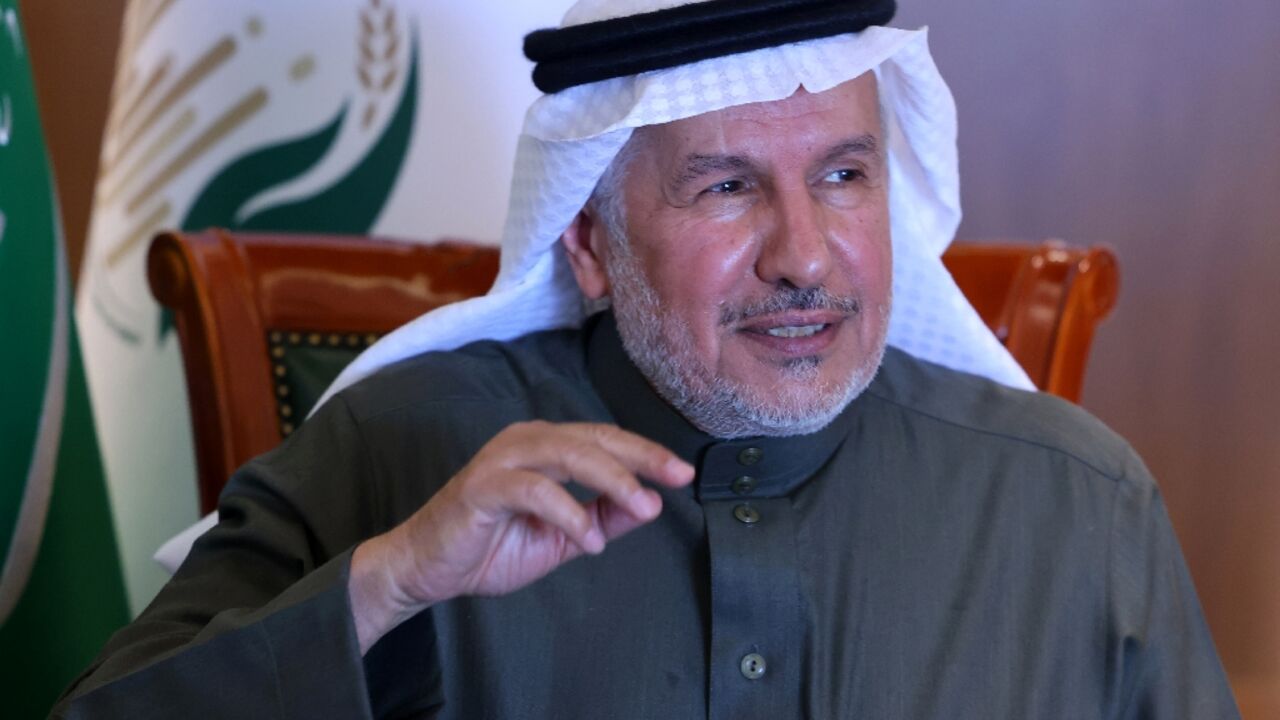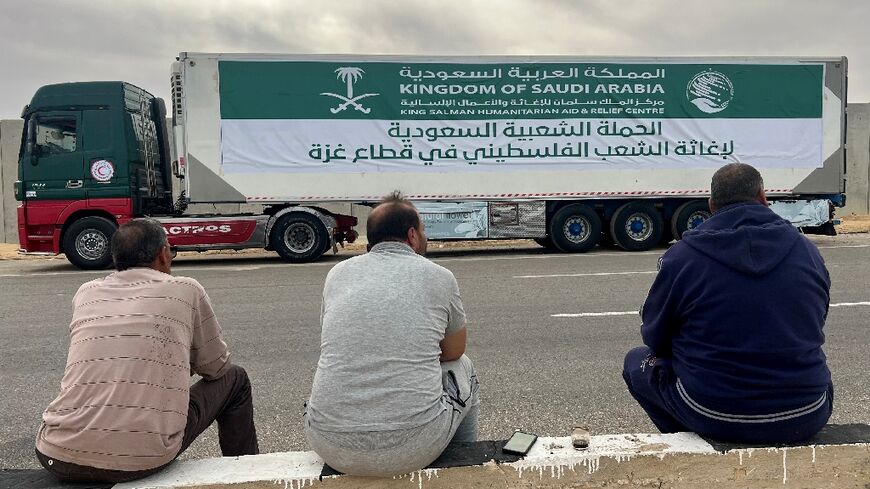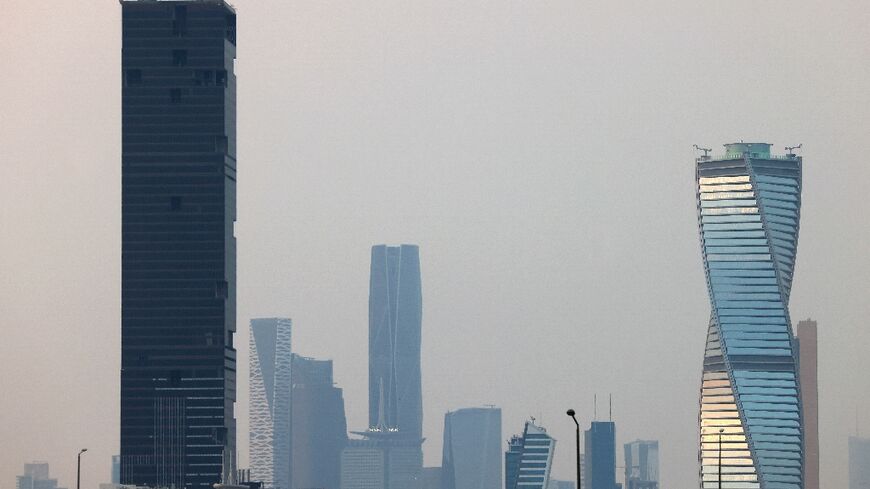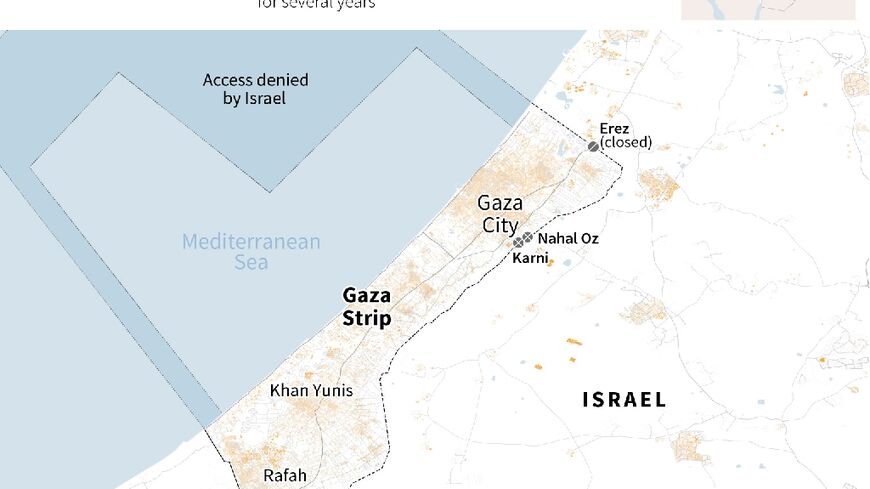UNRWA funding freezes risk 'aiding' deaths in Gaza: Saudi official

Freezing funds to the UN agency for Palestinian refugees risks "aiding" the deaths of civilians in Gaza, the head of Saudi Arabia's humanitarian agency told AFP on Tuesday.
Several countries -- including the United States, Britain, Germany and Japan -- have suspended funding to the UNRWA agency in response to Israeli allegations that some of its staff members participated in the October 7 attack by Hamas militants.
Last week, as its war against Hamas entered a fifth month, Israel's military also said troops had uncovered a Hamas tunnel under UNRWA's evacuated Gaza City headquarters.
The UN has sacked the 12 UNRWA staff members accused by Israel of involvement in the October 7 attack and said the tunnel claim should be investigated once the conflict is over.
"We should not penalise the innocent people, millions of people who are living in Gaza, because of an accusation on a handful of people," Dr Abdullah al-Rabeeah, head of the King Salman Humanitarian Aid and Relief Centre, told AFP in an interview on Tuesday.
"If you have close to two million people living in a small place... and then the funding for the food and for the health basics is stopped, basically you are calling for them to live in, actually, disaster and also aiding in their death."
Rabeeah, who is also an adviser to the Saudi Royal Court, spoke as Gaza braced for an expected Israeli incursion into the crowded southern city of Rafah where more than a million Palestinians are trapped.
He warned that such an operation would produce "chaos" and potentially trigger the "complete stoppage" of aid trucks.
"We will see thousands of people losing their lives. Now people talk about the threat of epidemics, the threat of famine, and you name it. So we don't want to see any civilian get lost because of things that can be avoided," he said.
- Aid hurdles -
Saudi Arabia, home to the holiest sites in Islam, has never recognised Israel, though officials were considering doing so before the October 7 attack which killed about 1,160 people, mostly civilians, according to an AFP tally based on official figures.
At least 28,473 people, mostly women and children, have died in Israel's relentless bombardment and ground offensive in Gaza, according to the Hamas-run health ministry.
While US President Joe Biden's administration has voiced optimism that Saudi-Israeli normalisation can be revived, Saudi Arabia said last week it had told Washington it would not establish ties with Israel until an independent Palestinian state is "recognised", and Israeli forces leave Gaza.
CIA Director William Burns was in Cairo Tuesday for a new round of talks on a Qatari-brokered ceasefire proposal that would temporarily halt fighting in exchange for Hamas freeing hostages.
Rabeeah said any deal should allow humanitarian aid to flow into Gaza "without any obstacles".
Saudi Arabia has sent 384 aid trucks and 20 ambulances into Gaza, he said, though he noted that an even greater amount of aid was stuck in Egypt, unable to cross into Gaza because of cumbersome regulations.
"We have newborn incubators -- this was not allowed to enter Gaza. So as a doctor, how would you imagine a newborn will survive if you deny him the basic need of an incubator?" he said.
"Some of the X-ray machines will not be allowed... How can you diagnose a patient without diagnostic tools?"
Altogether the Saudi agency has sent 5,795 tonnes of aid to support Gaza.
Rabeeah said that while reconstruction in Gaza still seemed far off, he hoped Saudi volunteers would participate directly if safety conditions permit.
"We hope to see our health workers helping the people of Gaza as much as they would be able also to help the people of Ukraine and other parts of the world," he said.
"Saudi Arabia is one of the top donors globally, and we will be one of those who will be active and in the front line when it comes to rebuilding of Gaza."





